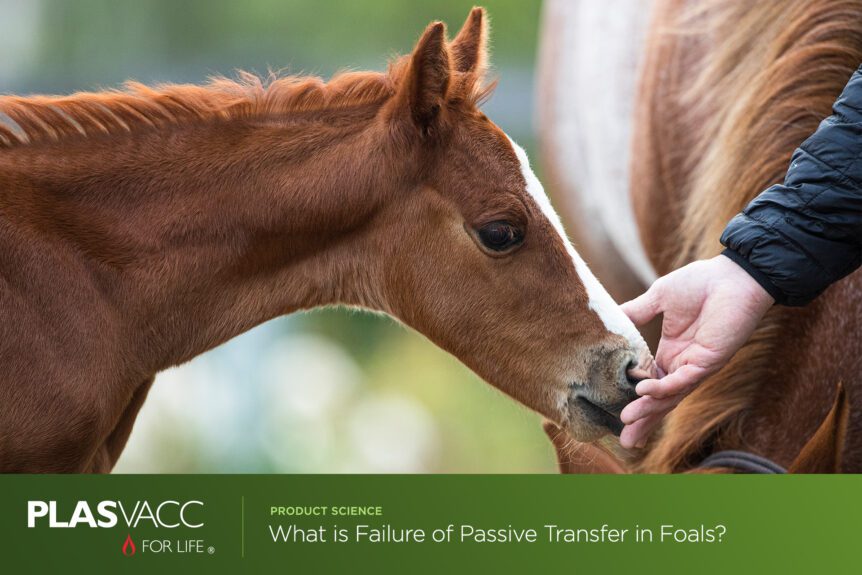Veterinary professionals working with horses know just how devastating Failure of Passive Transfer (FPT) in foals can be. A serious condition that places newborn foals at risk of developing life-threatening complications, FPT can occur in 10-20% of foals, which in Australia alone can account for nearly 3,000 foals in a given year.
At Plasvacc, we’ve worked hard to develop Equiplas, a line of proven plasma products with the goal of eliminating the risks associated with FPT by ensuring newborn foals receive superior immune protection, regardless of circumstances.
What is Failure of Passive Transfer?
Unlike in humans, foals enter the world without the benefit of antibodies provided by their mothers. Instead, mares transfer vital antibodies passively after birth via colostrum, a special form of milk produced in the final weeks of gestation. This places great importance both on a foal’s ability to nurse immediately after birth, as well as the mother’s ability to provide the foal with quality and sufficient colostrum.
“Mares produce colostrum only during the last 1 to 2 weeks of gestation as antibodies are actively transported from their blood and concentrated in the mammary gland. After nursing the colostrum, specialised cells that line the small intestine of the newborn foal absorb the antibodies and transfer them into the foal’s blood. Absorption of antibodies by these specialised cells is greatest during the first 6 to 8 hours after birth and stops by 24 to 36 hours of age.” (McCue, 2009)
If, after 24 hours of age a foal’s circulating antibody (also known as immunoglobulins, or IgG) levels are less than 400mg/dl then they are considered to have failure of passive transfer. Partial failure of passive transfer (PFPT) can also occur, and is classified by IgG levels of 400-800 mg/dl while successful passive transfer is defined by a blood IgG concentration greater than 800mg/dl.
The potential causes of FPT are many, but all are dangerous in that they prevent a newborn foal from receiving vital immune defenses, putting them at a much higher risk of complications from infection and disease. Studies show that actively treating FPT can reduce the subsequent incidence of severe disease: Download Here
Potential Causes of FPT
- Poor-quality colostrum
- Premature lactation causing colostrum to be lost before foal is born
- Inability or lack of desire by the foal to nurse
- Prematurity
- Foal rejection by the mare
- Failure to absorb antibodies that are ingested
How Does Plasvacc’s Equiplas® Equine Plasma Product Mitigate the Risks of FPT?
Plasvacc’s Equiplas® hyperimmunised plasma allows veterinarians to actively boost IgG levels in newborn foals, quickly and safely providing them with potentially-lifesaving immune defenses. Extremely rich in gamma globulins, Equiplas® supplements the immune response system of horses and is a APVMA and NZFSA registered, highly effective treatment for FPT and PFPT in foals while also serving as a great supportive therapy for a range of common conditions such as diarrhea, colitis, renal conditions and other active infections.
By supplementing a foal’s IgG levels, veterinarians can ensure that they are equipped with the immune defenses needed to give them the best chances of survival. If you have questions about Plasvacc’s Equiplas® products or wish to receive more information regarding the question ‘What is Failure of Passive Transfer?’ please feel free to reach out here.
References
McCue, P. M. (2009). FAILURE OF PASSIVE TRANSFER: Early Testing is the Key . Equine Reproduction Laboratory.
Watt, B., & Wright, B. (2008, April). The Importance of Colostrum to Foals: Colostrum and Passive Transfer Assessment . Ontario; Ministry of Agriculture, Food and Rural Affairs .

